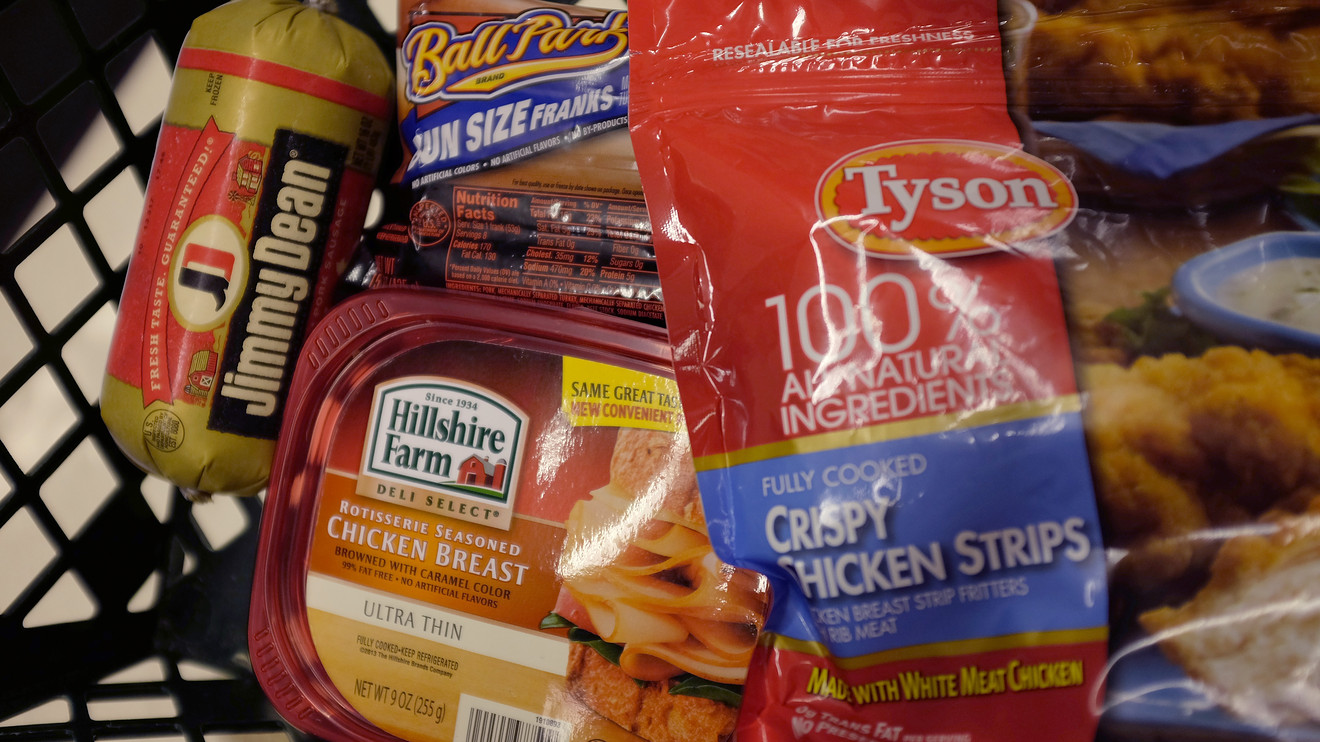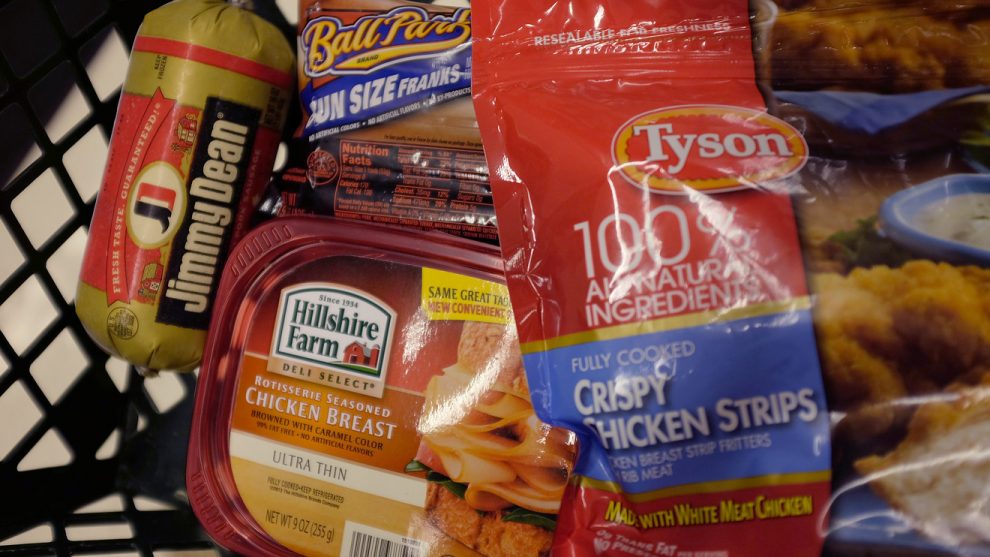
The U.S. Department of Agriculture said over the weekend that Tyson Foods Inc. TSN, +2.61% the producer of processed meats, would recall nearly 12 million pounds of frozen, ready-to-eat chicken strip products due to metal contamination concerns. The recall was expanded from a recall of 70,000 pounds (or 35 tons) of chicken strips announced by the company in March.
“The frozen, ready-to-eat chicken strip items were produced on various dates from Oct. 1, 2018 through March 8, 2019 and have ‘use by dates’ of Oct. 1, 2019 through March 7, 2020,” the U.S. Department of Agriculture’s Food Safety and Inspection Service said in a statement on Saturday. This chart contains a list of the products subject to recall.
The USDA said it’s aware of six complaints involving similar pieces of metal. Three Tyson consumers alleging injury when they attempted to eat them.
It’s not an uncommon issue. CTI Foods, a privately-held company, said last December it would recall almost 30,000 pounds of Jimmy Dean sausage links after five consumers said they found metal particles. R.L. Zeigler Co. said in January it would recall 11,664 pounds of ready-to-eat poultry and meat sausage products that may be contaminated with extraneous materials — specifically metal.
The problem was discovered when the Food Safety and Inspection Service received two consumer complaints of “extraneous material” in the chicken-strip products. The Department of Agriculture said it’s now aware of six complaints during this time frame involving similar pieces of metal with three consumers alleging injury when they attempted to eat them.
Anyone concerned about an injury or illness should contact a health-care provider, the USDA said. The government agency also said it’s concerned that some of this chicken may still be sitting in people’s freezers. “Consumers who have purchased these products are urged not to consume them,” it said. “These products should be thrown away or returned to the place of purchase.”
Also see: This one basket of strawberries contained 20 different pesticides
“Our company is taking corrective action,” said Barbara Masters, vice president of regulatory food policy, food and agriculture for Tyson. “We have discontinued use of the specific equipment believed to be associated with the metal fragments, and we will be installing metal-detecting X-ray machinery to replace the plant’s existing metal-detection system.”
Tyson said it will start using X-ray machines and a third-party video auditing system for metal-detection.
“Consumers expect that the food they eat is safe,” she added. “In their best interest and in an abundance of caution we’re taking quick and decisive action to expand this recall.” Tyson will also be using a third-party video auditing system for metal-detection verification, Masters said. “It is unacceptable to Tyson Foods that any product might not meet our standards,” she added.
On Monday, Tyson also reported fiscal second-quarter net income of $426 million, or $1.17 per share, up from $315.0 million, or 85 cents per share, last year. Tyson shares are up 44.4% in 2019, compared with 12.6% for the Dow Jones Industrial Index DJIA, -0.25% and 16.4% for the S&P 500 SPX, -0.45% over the same period.
Consumer advocates are not just concerned about meat contamination. Lead was found in 20% of baby-food samples, compared with 14% of samples of adult foods, according to a 2017 Environmental Defense Fund analysis of Food and Drug Administration data. Lead was most commonly found in fruit juices, sweet potatoes and teething biscuits.
There’s no safe level of lead, according to the EDF. Some 500,000 children have elevated blood lead levels, according to the Centers for Disease Control and Prevention. Children face the highest risks from such contamination, including behavioral problems and lower IQs. It can also cause high blood pressure and kidney damage in adults.
Get a daily roundup of the top reads in personal finance delivered to your inbox. Subscribe to MarketWatch’s free Personal Finance Daily newsletter. Sign up here.











Add Comment